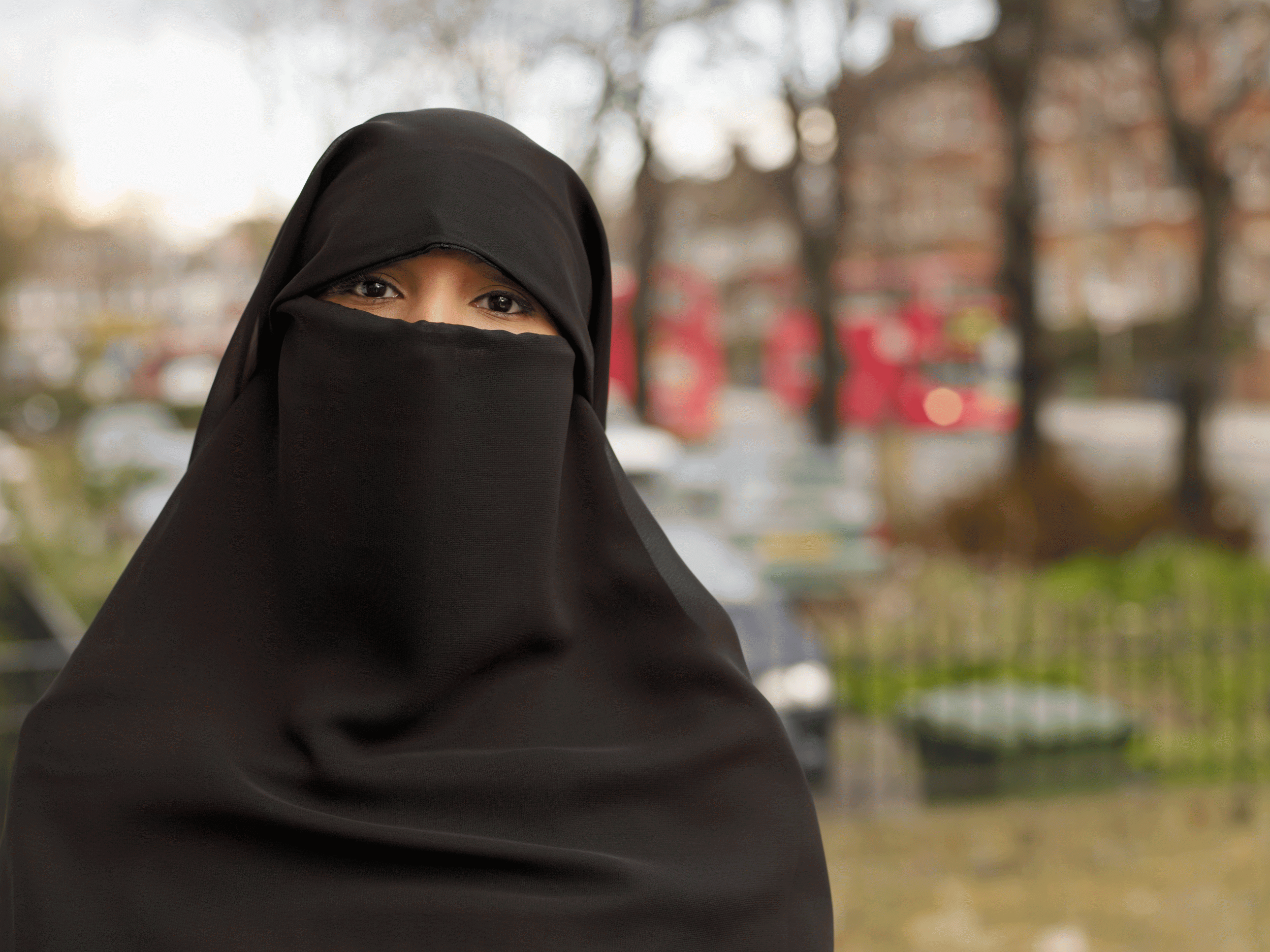Germany bans Muslim student from wearing niqab face veil in school
Two principles of the German consitution clash in the ruling

Your support helps us to tell the story
From reproductive rights to climate change to Big Tech, The Independent is on the ground when the story is developing. Whether it's investigating the financials of Elon Musk's pro-Trump PAC or producing our latest documentary, 'The A Word', which shines a light on the American women fighting for reproductive rights, we know how important it is to parse out the facts from the messaging.
At such a critical moment in US history, we need reporters on the ground. Your donation allows us to keep sending journalists to speak to both sides of the story.
The Independent is trusted by Americans across the entire political spectrum. And unlike many other quality news outlets, we choose not to lock Americans out of our reporting and analysis with paywalls. We believe quality journalism should be available to everyone, paid for by those who can afford it.
Your support makes all the difference.A Muslim student has been forbidden from wearing her full niqab in classes by a German court after her school said it hindered her educational development.
The 18-year-old was told by both her school and then a judge that she could not wear the religious garment which leaves the entire body and face concealed except for the eyes.
The ruling comes days after allies of Chancellor Angela Merkel said the burqa, which is different to the niqab, was "contrary to integration".
When the teenager tried to sue the Sophie Scholl Evening Gymnasium for forbidding her from wearing the face veil in lessons, she lost her case after it was escalated to an administrative court in Osnabrück.
The court in the north-west of the country rejected the teenager's appeal when she did not appear in person to make her case following huge media attention. She herself was born and grew up in Germany, according to the Neue Osnabrücker Zeitung.
It is one of the first rulings of its kind in Germany to forbid the face veil in classes, in a clash between the country's principle that each state may decide educational rules, and the principle of religious freedom. Both principles are signed into constitutional law.
The school had argued that it could not ensure the educational development of its student, who was admitted in April this year, when her face was fully covered. Clearly identifying the student was also a problem, it argued.
When the student suggested that a female teacher lift her face veil to identify her, the school said this measure did not solve the overarching problem of effective communication.
The school said that open communication between teachers and students relied "not only on the spoken word, but also on non-verbal elements and body language."
While in most incidents students and schools have usually reached an agreement before going to court, a similar incident in Bavaria saw a Muslim student forbidden from wearing the niqab at her secondary school, according to the Süddeutsche Zeitung.
German ministers are currently considering banning the burqa, which covers the entire female body in one garment and includes a mesh over the eyes, after criticism that it fails to allow newcomers to integrate.
Yet the interior minister, Thomas de Maiziere, has warned members of the ruling Christian Democratic Union (CDU) that such a law would contravene Germany's laws on religious freedom.
In 2014 the Bundestag decreed that "there is no right in public spaces to be protected from religious influences", shortly after the European Court of Human Rights confirmed it was legal for France to ban full-body veils, on account of the country's constitutional secularism.
CDU politican Jens Spahn was the first to propose the ban in late July, telling Die Welt newspaper:
"Anyone who is on their way to Germany [from another country] must be aware that life here will be very different than that at home. They should be even more careful if they really want to live in this Western culture."
Join our commenting forum
Join thought-provoking conversations, follow other Independent readers and see their replies
Comments